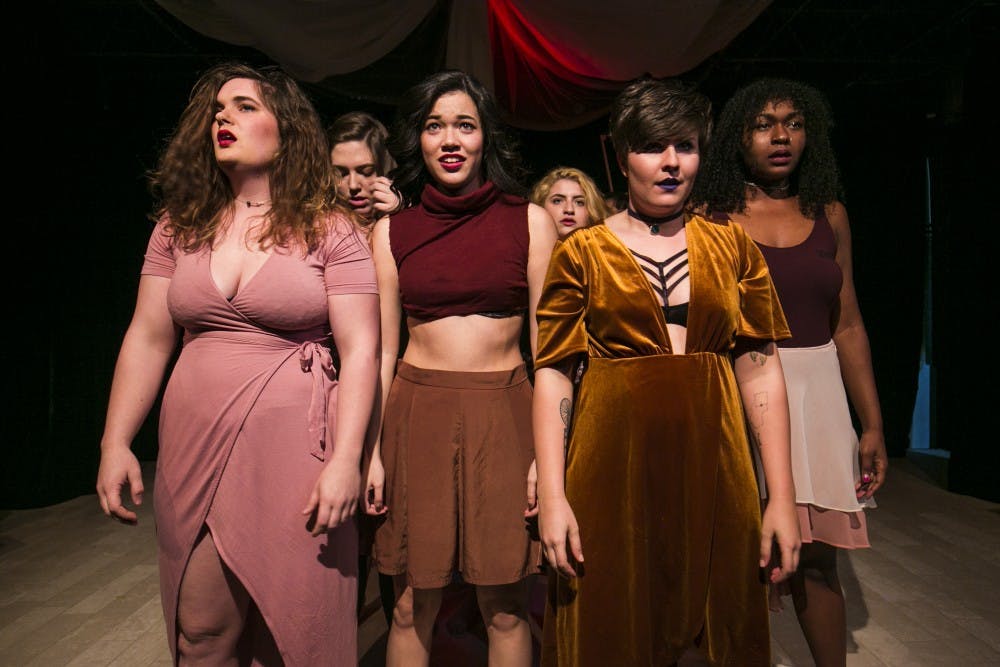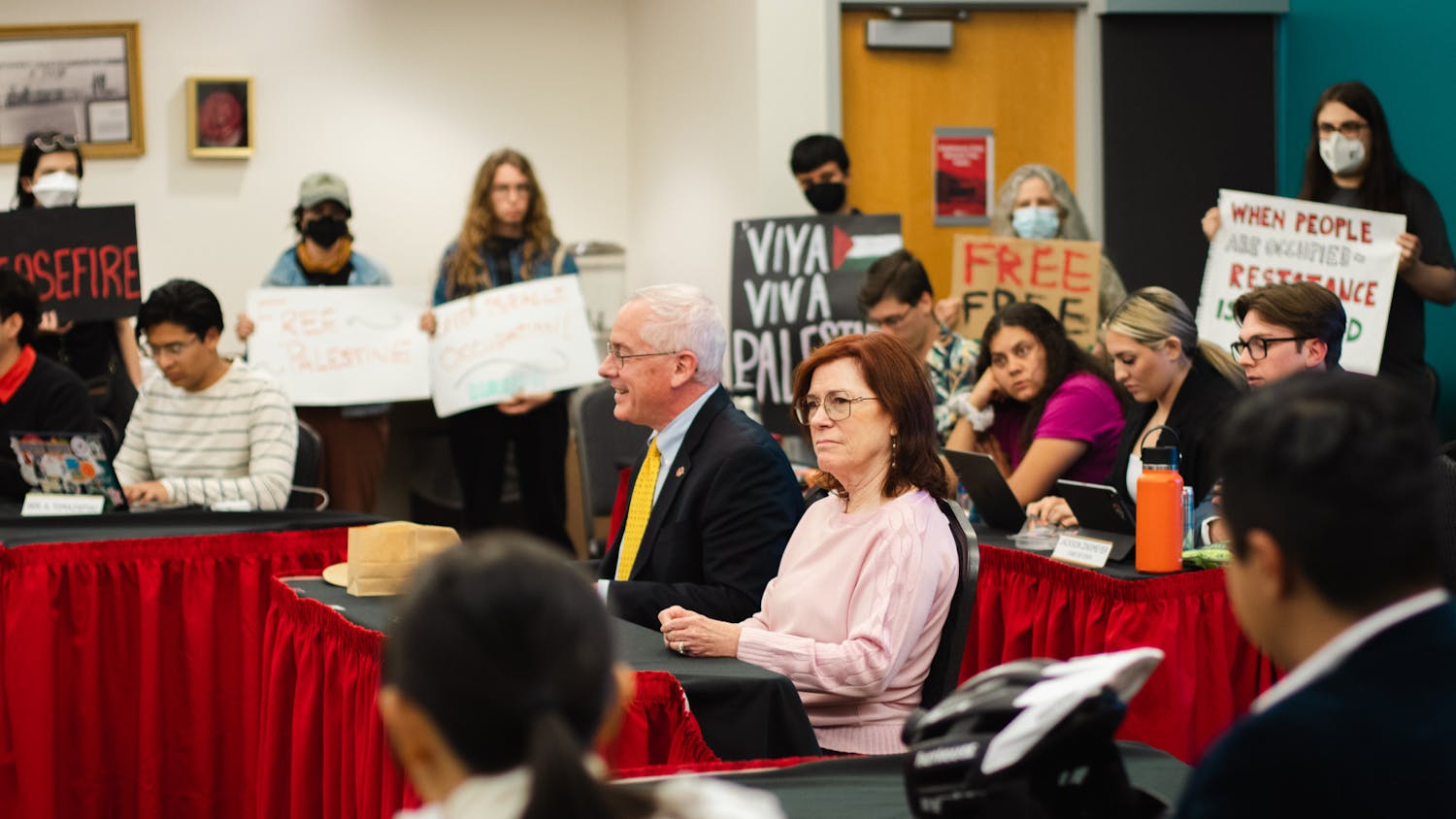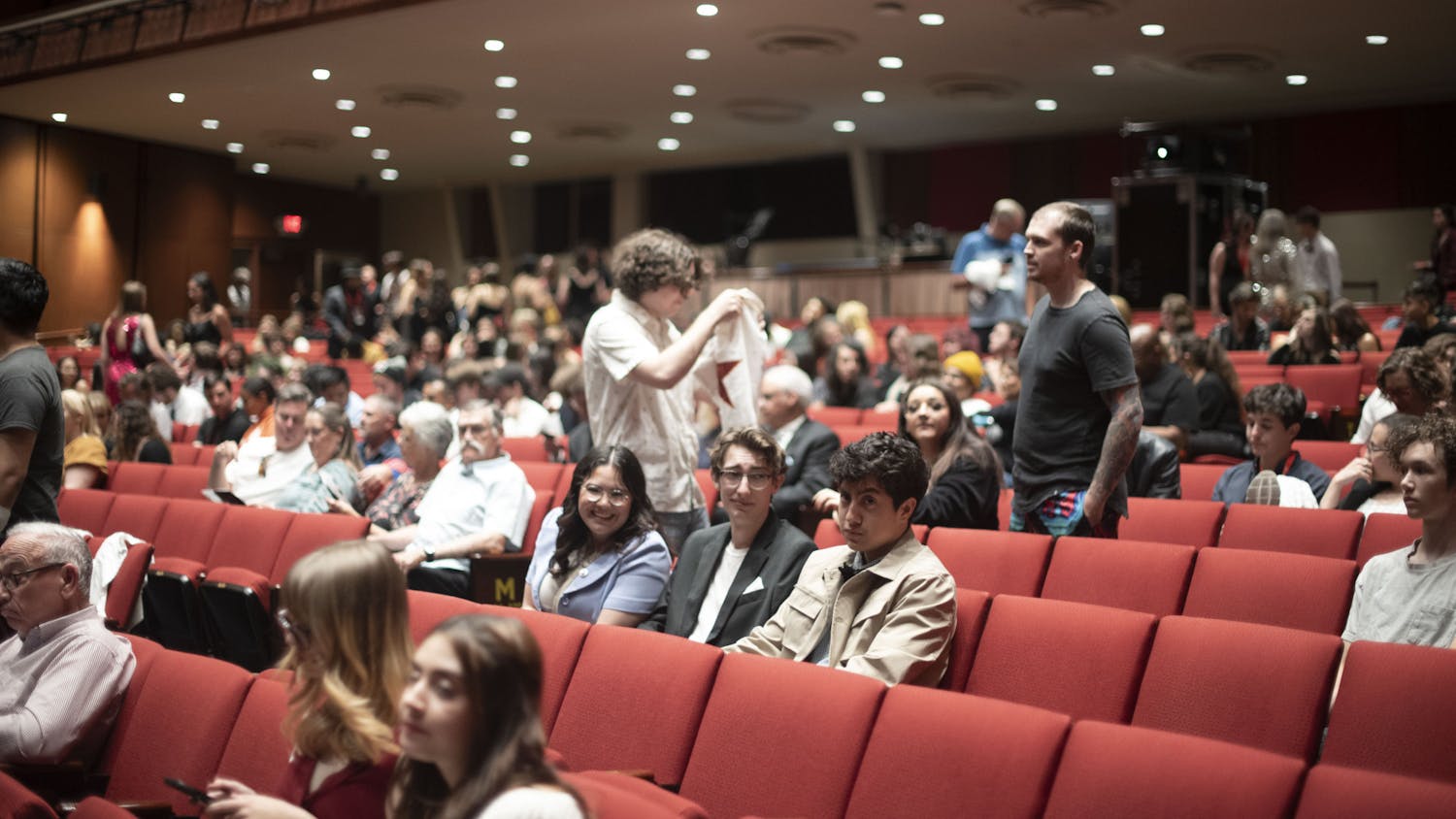“Our Glass Figures,” a show produced by the Mud&Wine theater collective, explores intersectionality, rape culture, empowerment, and the struggles and nuances of womanhood in contemporary America.
The show ran for one week each at the Tricklock Performance Laboratory and The Cell Theater.
“The show is a combination of dance, song, sketch comedy, poetry and personal narrative,” writer Caroline Graham said. “Its structure is cyclical and fragmented, and the content ranges from the darkly humorous to the deeply personal and tragic.”
The show was originally scheduled to run in July 2017, but the outcome of the 2016 election, along with the increasingly divisive rhetoric that marred the campaign trail, compelled the collective to develop the show much sooner.
“Things are changing at a frightening pace, and we needed the piece to reflect that urgency,” Graham said. “We built this show from the ground up in about a month, rehearsing four to five times a week, and generating writing both inside and outside of rehearsals.”
Within the show are 11 true and personal accounts of sexual assault, the material for which stemmed from a writing exercise developed by Graham.
“I realized that we couldn’t create a piece about women’s issues without addressing the prevalence of trauma, particularly sexual violence,” she said.
Mud&Wine company member and actress Katie Farmin said the show did not shy away from scary or sad topics facing women today.
“The audience has to face some of the topics we bring up head on,” Farmin said. “This play is a safe way to have a dialogue about these issues.”
Graham said it was important to establish a safe environment, in which the performers could share their own stories or each other’s stories, to create “that personal connection with the audience.”
When conducting the writing exercise, Graham became more motivated to produce the show as soon as possible.
“You cannot deny there is a problem when every woman in the cast has a story to tell,” she said.
Get content from The Daily Lobo delivered to your inbox
Graham said she has always had an interest in trauma studies and verbatim theater, which puts the words of real individuals onstage, and is driven to elevate unheard or marginalized voices.
“I wanted to create this piece with a diverse group of young women to explore our individual struggles, traumas and celebrations of womanhood, and to embrace feminism in a truly intersectional way,” she said.
Jose Castro, the show’s director, said he was excited to be a part of something that could educate and unite people in a safe space.
“I was immediately drawn to direct the show because of the message it drives,” Castro said. “I believe theatre is one of the best ways to educate people; it highlights the nastiest and most uncomfortable parts of the human experience that we often don’t talk about.”
Castro said the production discusses political inequality, misogyny, rape culture and other societal issues while delivering a message of inclusivity and equality for everyone.
The show has received lots of positive feedback, the most surprising of which came from young men, Farmin said.
“When men see this show, they are awakened to the different types of sexual violence out there,” she said. “They have no idea how often women can be pressured into sex, or how an encounter like that can affect you down the road.”
Farmin hopes the levity and legitimate sense of relevance brought to the show through the personal accounts will inspire men to change their opinions on these issues.
“It lights a fire inside them to stop shying away from those topics,” she said. “They try harder not to be ‘that guy,’ but to shut down locker room talk.”
Celia Raney is a news reporter at the Daily Lobo. She can be contacted at news@dailylobo.com or on Twitter @Celia_Raney.






